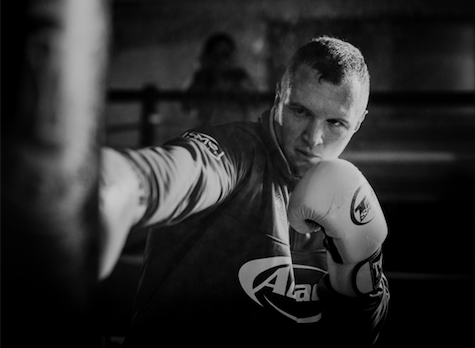In 1 Corinthians, Paul wrote to the people of Corinth, among other things, about the human need for self-discipline, including his own need. It is in this epistle that boxing is specifically mentioned in scripture. Paul says in 1 Corinthians 9: 25-27:
Everyone who competes in the games goes into strict training. They do it to get a crown that will not last, but we do it to get a crown that will last forever. Therefore I do not run like someone running aimlessly; I do not fight like a boxer beating the air. No, I strike a blow to my body and make it my slave so that after I have preached to others, I myself will not be disqualified for the prize.
Paul was speaking about taking control over the flesh with the mind, in order to avoid the deadly sins (gluttony, for example) and he was also making sure the people of Corinth understood he practiced what he preached – he was no hypocrite. He was also speaking about the ultimate crown, which is rewarded not on Earth but in Heaven.
Boxers, and athletes of all kinds, understand how crucial is self-discipline. Without it, the best you can possibly be is – well, ordinary. But athletic conditioning, especially for competition, is by virtue extraordinary. That’s because it requires sacrifice, which is something many people aren’t willing to do. In Paul’s time, athletics were extremely popular and thus made an appropriate metaphor for living a Christian life. But at the heart of Paul’s words lies a much deeper meaning, which he explains four chapters later in what is probably one of the best-known, most beloved, and most poetic chapters of the Bible.
That would be 1 Corinthians 13:
If I speak in the tongues of men or of angels, but do not have love, I am only a resounding gong or a clanging cymbal. If I have the gift of prophecy and can fathom all mysteries and all knowledge, and if I have a faith that can move mountains, but do not have love, I am nothing. If I give all I possess to the poor and give over my body to hardship that I may boast, but do not have love, I gain nothing.
Love is patient, love is kind. It does not envy, it does not boast, it is not proud. It does not dishonor others, it is not self-seeking, it is not easily angered, it keeps no record of wrongs. Love does not delight in evil but rejoices with the truth. It always protects, always trusts, always hopes, always perseveres.
Love never fails. But where there are prophecies, they will cease; where there are tongues, they will be stilled; where there is knowledge, it will pass away. For we know in part and we prophesy in part, but when completeness comes, what is in part disappears.
Paul is telling the people of Corinth in that chapter – which applies to all of us today – that you can be the most self-disciplined athlete in the world, you may be a gladiator who wins every crown (or belt in our case) or you may be blessed with the spiritual gifts like prophecy – but if you do these things and don’t have love, it comes to nothing. The love he means, of course, is man’s love and devotion to God, to put Him above all earthly pursuits and desires. Without this essential ingredient, everything is meaningless. Like a boxer punching at the air, ambition without God is an empty vessel – a “resounding gong or clanging cymbal.”
I like to think of my boxing training as a means by which I align my physical body with my spiritual body. If I have a weakness in one, it negatively affects the other. If I’m spiritually strong but lack bodily self-discipline, I might fall into sin, which leads to unhappiness. On the other hand, if I’m on top of my game at the gym every day but I have no love, I may as well be shadowboxing into eternity, as there would be no point. Because ultimately, whatever wins I might gain are not coming with me when I leave this Earth.
Paul concludes:
When I was a child, I talked like a child, I thought like a child, I reasoned like a child. When I became a man, I put the ways of childhood behind me. For now we see only a reflection as in a mirror; then we shall see face to face. Now I know in part; then I shall know fully, even as I am fully known. And now these three remain: faith, hope and love. But the greatest of these is love.
You may also like
1 thought on “A lesson in love and self discipline from the apostle Paul.”
Comments are closed.

This article resonates the purity in selfless love .
I am grateful that the apostle Paul’s teachings continue to be shared, and hope that I too can live a life that spreads love even when I don’t like the behaviors of another individual .
Love conquers all